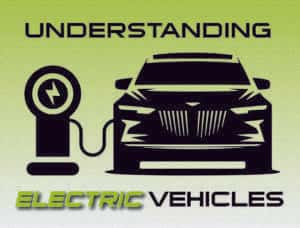Electric vehicles (EVs) have come a long way in recent years. Whether you’re concerned about the environment, the rising cost of gas, or simply looking for a new and exciting way to get around, EVs are becoming a practical choice for many drivers. If you’re new to the world of electric cars, this guide will walk you through the basics and help you decide if an EV is the right choice for you.
What is an Electric Vehicle?
At its core, an EV is any vehicle that uses electricity as its primary source of power. Unlike traditional gasoline-powered cars, EVs run on batteries that are rechargeable, much like your smartphone or laptop. There are two main types of electric vehicles:
- Battery Electric Vehicles (BEVs): These vehicles run entirely on electricity. They don’t use any gasoline or have an internal combustion engine. Popular examples include the Tesla Model 3, Chevrolet Bolt, and Nissan Leaf.
- Plug-in Hybrid Electric Vehicles (PHEVs): These vehicles combine an electric motor with a gasoline engine. They can run on electricity alone for shorter trips, but once the battery is depleted, they switch to gasoline. Examples include the Toyota Prius Prime and Mitsubishi Outlander PHEV.
Why Choose an EV?
There are several reasons why drivers are making the switch to EVs:
- Environmental Benefits: EVs produce zero emissions while driving, which makes them a more eco-friendly option compared to gas-powered cars. If you’re looking to reduce your carbon footprint, switching to an EV is a great way to contribute to a cleaner environment.
- Lower Operating Costs: Electricity is generally cheaper than gasoline, so you can save money on fuel costs by charging your vehicle. Additionally, EVs have fewer moving parts, which often results in lower maintenance costs. There’s no need for oil changes, transmission repairs, or exhaust system maintenance.
- Government Incentives: Many countries, states, and local governments offer financial incentives to encourage drivers to go electric. These may include tax credits, rebates, or reduced registration fees. Be sure to check what’s available in your area, as it can make buying an EV more affordable.
- Quiet and Smooth Ride: EVs are known for their quiet operation and smooth acceleration, thanks to the instant torque provided by the electric motor. For those who prioritize a comfortable, noise-free ride, EVs can be very appealing.
- Charging at Home: One of the most convenient aspects of owning an EV is the ability to charge it at home. Most EV owners install a home charging station, allowing them to plug in their car overnight and wake up to a full battery.
Things to Consider Before Buying an EV
While EVs have many advantages, there are some important factors to consider before making a purchase:
- Range: Range refers to how far an EV can travel on a single charge. Today’s electric vehicles typically offer anywhere from 150 to over 300 miles per charge, depending on the model. If you have a long daily commute or frequently take road trips, make sure the range of your EV meets your needs.
- Charging Infrastructure: Charging stations are becoming more common, but availability can vary by location. If you live in an urban area, you’re likely to find public charging stations relatively easily. For rural drivers, it’s important to plan your trips carefully or invest in a home charging station.
- Charging Time: EVs take longer to “refuel” compared to filling up a gas tank. Charging times vary based on the vehicle and the type of charger. While home charging overnight usually covers daily driving needs, you might need to use a fast charger for longer trips, which can get your battery to 80% in as little as 30 minutes.
- Upfront Cost: EVs can be more expensive upfront than traditional cars, but this is offset by lower long-term costs, including fuel and maintenance. Additionally, federal and state incentives can significantly reduce the initial price of an EV.
- Battery Life and Warranties: EV batteries are designed to last a long time, typically 8 to 15 years. Most manufacturers offer warranties that cover battery replacement, ensuring you won’t face huge out-of-pocket expenses if the battery degrades over time.
The Future of EVs
The future of electric vehicles looks bright. Automakers are investing heavily in EV technology, leading to better battery efficiency, longer range, and more affordable models. Governments are also pushing for greener transportation options, which means we’ll likely see even more incentives and infrastructure improvements in the coming years.
As EV technology continues to evolve, we can expect more vehicle options in different price ranges, faster charging solutions, and advancements in autonomous driving features. For those considering the switch, there’s never been a better time to explore what electric vehicles have to offer.
Conclusion
Electric vehicles are more than just a trend—they’re becoming a viable and exciting alternative to gasoline-powered cars. From environmental benefits to cost savings and government incentives, there are plenty of reasons to consider an EV for your next vehicle. Just make sure to weigh the pros and cons, consider your driving habits, and explore the various models available. With the right research, you’ll be well-equipped to make the switch to electric driving.
